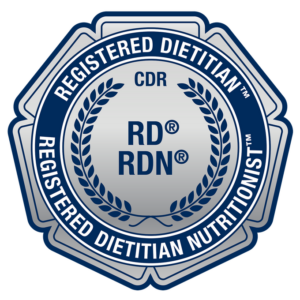Do you have Gut Problems?
You eat, but afterward your stomach looks like a balloon. You feel the gurgling creeping up on you. Then you are running to the bathroom. Or, the opposite, you can’t go and you are stuck with a balloon size belly. Do these gut problems sound familiar?
Harvard Health calls it a “medical mystery” and “mysterious ailment.” It’s been linked to everything from gut problems, autoimmune diseases, and even mental health concerns.
I’m talking about “leaky gut” —have you heard of it?
Many doctors and the established medical community may not recognize it, but there is growing research to suggest it is associated with many health conditions.
What exactly is “leaky gut?” Do you have it? How does it happen? What can you do about it?
What is “Leaky Gut?”
Your gut (gastrointestinal system) is not just a 30-foot-long muscular tube (tract) that starts at your mouth and ends with you going to the bathroom. In fact, it’s a complex system with many functions. The stomach works like churning butter to break food down into smaller bits. Those bits move through the gastrointestinal tract and absorb water and nutrients. More and more research shows that these essential gut functions interconnect many parts of your body. Everything from your heart to your brain.
Your gastrointestinal tract is lined with millions of cells, all side-by-side in a single layer. Those intestinal cells help the body to absorb what we need from foods and drinks while keeping out what needs to stay out. It acts as a gatekeeper allowing in what your body uses and keeping out the rest which ends up as waste. This is only possible if the cells are working properly and joined together very tightly, called “tight junctions.”
Leaky gut happens when the cells aren’t so tight anymore. Gut problems start when it is irritated and weakened, allowing tiny holes to appear. These holes allow things like food, waste products, and bacteria get into the bloodstream. This is when the bloating and the problems begin.
When these get into the bloodstream your immune system is triggered to start fighting them. Similarly to how your immune system starts fighting the cold virus and causes inflammation. This immune reaction is normal and helps keep you healthy.
Are your gut problems, leaky gut?
The symptoms of leaky gut are similar to those of other digestive conditions like inflammatory bowel disease, celiac disease, and Crohn’s disease. Symptoms can include diarrhea, constipation, cramps, bloating, food sensitivities, or nutrient deficiencies.
Food particles, toxins, and bacteria are absorbed into the bloodstream. Then, travel throughout your body. So symptoms can appear anywhere. Studies show that leaky gut may feel like:
- fatigue
- headaches
- confusion
- difficulty concentrating (brain fog)
- joint pain
- skin problems (e.g., acne, rashes, eczema).
Leaky gut is also linked with:
- Diabetes
- Polycystic ovarian syndrome (PCOS)
- Liver disease
- Chronic fatigue syndrome
- Autoimmune diseases such as lupus and multiple sclerosis
- There may even be links to anxiety and depression.
Many of these gut and non-gut symptoms and conditions are linked to chronic inflammation, but more research is needed to understand how they are connected.
Even if you have some of these symptoms, the fact is, it’s very difficult to diagnose a leaky gut, nor how leaky it is. While there are some biomarker tests, there isn’t a reliable diagnostic test available just yet. So, it’s difficult to say whether your symptoms are from leaky gut, or whether the leaky gut is a symptom of another issue.
What causes Leaky Gut?
It’s not 100 percent clear what causes those bonds to loosen. Which results in tiny perforations in the gut barrier. In fact, research continues to understand how the gut barrier functions.
Part of the leaky gut may be due to the genes you inherit from your parents. It can also be from medications or gut infections. Leaky gut is also linked to your diet. In the next article, we’ll explore the diet more in-depth. Leaky gut may even result from stress or an imbalance in the diversity and numbers of your friendly gut microbes.
Also, as you age your cells can get damaged more easily and heal slowly, including the cells that line your gut. This can leave you more susceptible to loosening of the gut barrier.
Heal your Gut Problems
Healing your leaky gut is a process that will take time. But, there is hope that your symptoms can improve. When it comes to leaky gut, a few simple shifts towards a gut-friendly diet can help your gut problems. Try cutting down on alcohol, processed foods, and any that you may be allergic or sensitive to. And remember that regular exercise, stress management, and quality sleep are great lifestyle strategies for your gut and the rest of your body.
Stay tuned for more information on a gut-friendly diet. Contact me for a free E-book on gut problems.
I am here to help you.
This process does take time and should be guided by a health care professional. If these symptoms are bothering you, schedule a “get to know you” session where I offer a complimentary health review. As a result of this evaluation, I can then provide suggestions on a gut-friendly diet. Please contact me for a free health consultation.


